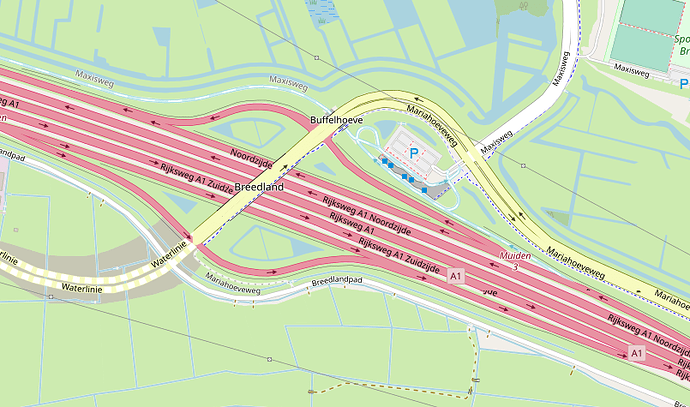Not to sound trollish, but isn’t it? At least, it doesn’t seem to belong to OSMF, as it is not located under https://github.com/openstreetmap/? Unless I’m wrong, it is a separate project, that OSMF happens to make use of. Thus owners / maintainers of that project are the ones who decide what they will (or won’t) do.
If OSMF is unhappy about those decisions, they can fork the style (license allows it, yes?) or they can change default style to something else completely.
But for that there likely would need to be consensus about what OSM users want, and that seems hard, as it tends to vary between extremes (some wanting GoogleMaps lookalike, some wanting US printed-map style, some wanting EU style, some wanting basemap with majority of features NOT being rendered so it can be used as basemap, and some insisting that OSM is not a map but a geo database and thus only map shown on osm.org should be debug-map with every single tag represented graphically for easier debug; or even that any map should be completely removed from osm.org website to drive the point home and thus save the time on conflicting wishes of users), even before the allocation of resources.
Alternatively, if one wants to convince (Carto, or any other) maintainers to do something, it is usually best accomplished in a way you would use to try to convince complete stranger to do you a favor. That is: not by threatening, demanding, complaining, arguing or trying to force your view, but instead listening to their feedback and expending extra time and effort to read the whole thing and trying to accommodate and implement what they ask for.
Not willing to expend that effort and/or “bend to their will”? It’s fine and quite reasonable course of action, but then one really shouldn’t feel entitled to get something back from those volunteers.
OSMF might as well demand that Ruby programming language must support some new feature, as it would make the osm.org website built on Ruby on Rails easier for them.  It’s not how FOSS works.
It’s not how FOSS works.
Did you actually read that comment near the bottom of that PR you linked? It’s not very often that I agree with @imagico but this seems to be correct interpretation to me:
As we have said many times in other contexts: The proposal process on the wiki is a means to allow mappers to evaluate their tagging ideas in discussion with a somewhat wider audience and possibly identify and address issues that they have not seen. It is not in any way authoritative to anyone - neither mappers nor data users. It can help increase the chance of a new tagging idea to be successful, it is not a guarantee for that. And it has no bearing on our decision if and how to render certain tags. We base that primarily on how tags are actually used.
Or to rephrase: Proposal process is not about vote outcume. It is about discussion to be able to work out the kinks and potential problems, as well as modifying the idea you had so the tag that one proposes is more usable to wider audience, and find holes in the plans - before the tag starts getting used (when dealing with the issue would be much more involved and problematic). Voting is there just to give people a feeling of closure, not because it accomplishes anything by itself.
(and that that particular proposal seems to have had several issues that went unaddressed, and that its vote barely passed. Never a good sign for wide adaptation)
